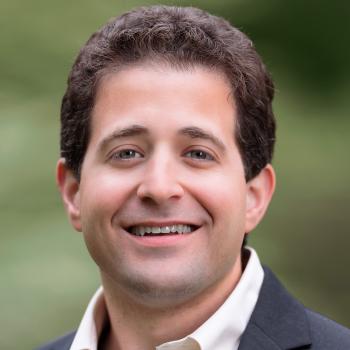Public Sin

Might the concept of public sin aid the public theologian in illuminating the White House shouting match?
The White House Shouting Match
So, what’s the problem? The US president and vice president simply told Ukraine’s President Volodymyr Zelenskyy: “no deal.” Because America could not extort tribute from Ukraine without providing that country with military security, Washington said “no.” Certainly, there’s nothing wrong with this. Right?
Let’s look a bit closer. The White House placed the visiting Zelenskyy in front of the press with microphones and cameras – including the invited Russian state media – allegedly to negotiate a deal. Instead of negotiating, America’s president and vice president accused the Ukrainian visitor of being ungrateful and disrespectful. With his shaming finger batting empty air, the president shouted, “You’re not in a good position; you don’t hold the cards; you’re gambling with World War III; you’re disrespectful.” Then the White House kicked the visitor out with no lunch.
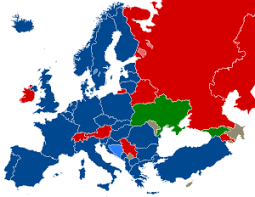
Why did the US president ambush the Ukrainian president in order to humiliate him on camera? Out of personal revenge. In a previous encounter during the 45th presidency, Zelenskyy had refused a request to concoct a false narrative about former President Joe Biden’s family. The motive was to manufacture some campaign dirt. This attempt to exploit Ukraine for such a trivial purpose became a salient argument in the 45th president’s first impeachment trial. No doubt the harboring of resentment and the desire for retribution contributed to this 2025 decision to humiliate Zelenskyy.
It appears that the 47th US president is also anxious to thank the President of the Russian Federation, Vladimir Putin, for ordering his internet hackers in St. Petersburg to interfere in US elections on behalf of the Republican candidate in 2016, 2020, and 2024. For Putin, the humiliation of Zelensky was like receiving a musical eCard from Jacqueline Lawson.
“The political world, in the U.S. and internationally, was instantly aflame over what had taken place,” wrote Niall Stanage in The Hill.
What could be the consequences? Without the military might of the United States, Ukraine is left nearly helpless against the invading Russian army. Ukraine could fall into enemy hands amid the bombing. NATO will need to reformulate the defense of Europe from further expansion of the Russian empire.
Former US Congresswoman Liz Chaney (R Wyoming) drew out the consequences.
“Generations of American patriots, from our revolution onward, have fought for the principles Zelenskyy is risking his life to defend. But today, [The White House] attacked Zelenskyy and pressured him to surrender the freedom of his people to the KGB war criminal who invaded Ukraine. History will remember this day— when an American President and Vice President abandoned all we stand for.”
How might the concept of public sin illuminate the White House shouting match?
It’s common these days to marginalize Christian sin-talk because it’s allegedly personal, individual, or trivial. Sin is between God and the soul, right? All others keep out! (Peters 1993)
Yet, there is a school of thought that thinks of sin as a public matter. It’s a school of thought that is as American as apple pie and baseball. It’s known in the Reformed tradition as New Divinity or American moral governmental theology. Here is the chief theme: sin against God’s moral order is a public matter. The most personal of sins is inextricably tied to the larger society and even to the moral order of the universe.[1]
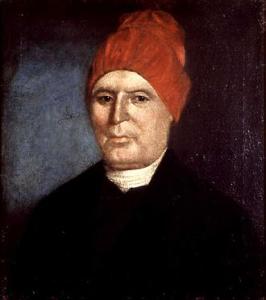
One 18th-century disciple of Jonathan Edwards, Samuel Hopkins, served as pastor of First Congregational Church in Newport, Rhode Island. In that port city, African slaves regularly arrived, were sold, and were sent to their lives of hard labor. Such reprehensive evil was simultaneously destroying the bodies of the slaves and the souls of the slaveholders. America needed a national reformation, Hopkins argued publicly. Here is the doctrine of sin with which he worked.
“The least degree of selfish love necessarily destroys all due proportion and sets up a selfish interest detached from that of others, and injurious to the whole. It is, in the very nature of it, an enemy to the harmony and happiness of the whole, and breaks in upon it, and tends to spread confusion and evil through the whole, in opposition to universal benevolence” (Hopkins 1854, 242-243).
This is public sin.
The sin of the part poisons the whole
Why is it public sin? Because the sin of the part poisons the whole. The selfishness of the individual infects the larger society. Personal vengeance fractures the larger community. Here is Obbie Tyler Todd at New Orleans Baptist Theological Seminary.
“An individual’s well-being is inextricable from the collective good. Therefore, personal sin cannot be detached from the corporate body …. individual sin permeates society” (Todd 7/2019, 254).
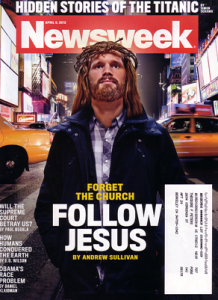 Might this concept of public sin illuminate our White House shouting match? The selfish motives of America’s president may very likely disturb the delicate world order, cause Ukraine to lose its sovereignty, and let loose the Russian bear to devour Eastern Europe.
Might this concept of public sin illuminate our White House shouting match? The selfish motives of America’s president may very likely disturb the delicate world order, cause Ukraine to lose its sovereignty, and let loose the Russian bear to devour Eastern Europe.
Conclusion
Now, I recognize that it is dangerous for me to point out someone else’s sin. Jesus warned us: when you point out the speck in someone else’s eye, carefully notice the log in your own eye (Matthew 7:3). Even so, the White House shouting match threatens to blur the vision of nearly everyone on our planet. The personal vendetta one president holds against another is simultaneously a fracture in the world order. Peoples on nearly every continent will need to scramble to heal the fracture before world peace comes apart.
Patheos ST 2169 SIN 19 Public Sin
SIN 7 The true story of Satanic Panic
SIN 8 How can Satan cast out Satan?
SIN 9 Ted’s Tips on Satan and Demons
SIN 18. The Politics of Revenge
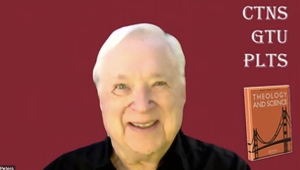
For Patheos, Ted Peters posts articles and notices in the field of Public Theology. He is a Lutheran pastor and emeritus professor at the Graduate Theological Union. He co-edits the journal, Theology and Science, with Robert John Russell on behalf of the Center for Theology and the Natural Sciences, in Berkeley, California, USA. His single volume systematic theology, God—The World’s Future, is now in the 3rd edition. He has also authored God as Trinity plus Sin: Radical Evil in Soul and Society as well as Sin Boldly: Justifying Faith for Fragile and Broken Souls. More recently, The Voice of Public Theology, has been published by ATF Press. See his website: TedsTimelyTake.com.
Notes
[1] One corollary to public sin in this tradition is the non-penal substitution model of atonement. Oliver Crisp at the University of St. Andrew’s is central to this discussion. According to the penal non-substitution model of the atonement, Christ’s death satisfies the cosmic need for moral order but does not function as a substitute for your and my sin. Christ provides a “suitable equivalence” even if not a substitute (Crisp 4/2008, 158).References
Crisp, Oliver. 4/2008. “Penal Non-Substitution.” The Journal of Theological Studies 59:1 140-168. https://doi.org/10.1093/jts/flm147.
Hopkins, Samuel. 1854. System of Doctrines. Boston: Doctrinal Tract and Book Society.
Peters, Ted. 1993. Sin: Radical Evil in Soul and Society. Grand Rapids MI: Wm B Eerdmans.
Todd, Obbie Tyler. 7/2019. “A Public Atonement.” International Journal of Systematic Theology 21:3 251-264.








